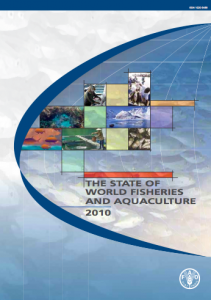 Global fisheries statistics must be viewed with a critical eye. Fisheries landings data are collated by FAO and contributed by all member countries, which have varying resources and motives. In a new paper recently published in Marine Policy, Daniel Pauly and Rainier Froese take a close look at FAO’s State of the Worlds Fisheries and Aquaculture’ (SOFIA) report from 2010 and discuss the FAO’s history, as well as the implications, imperfections, and possible improvements to be made to fisheries data.
Global fisheries statistics must be viewed with a critical eye. Fisheries landings data are collated by FAO and contributed by all member countries, which have varying resources and motives. In a new paper recently published in Marine Policy, Daniel Pauly and Rainier Froese take a close look at FAO’s State of the Worlds Fisheries and Aquaculture’ (SOFIA) report from 2010 and discuss the FAO’s history, as well as the implications, imperfections, and possible improvements to be made to fisheries data.
Pauly and Froese are both complimentary and critical. They point out the misleading use of the word ‘stability’ in the report as it refers to global catch data from 2005-2008, and point out that even if that global catches are indeed stable, fishing effort is rapidly expanding. They note the FAO’s acceptance of scientific data that showed China does not know how much its fisheries catch, and the large degrees of uncertainty around global trends this problem creates. Pauly and Froese point approvingly to SOFIA’s position on assemblage overfishing and their statement: ‘ We do not disagree that a general decline in mean trophic level of marine landings is likely to have occurred in many regions.’ Finally, Pauly and Froese call for cooperation between institutions, e.g., U.N. technical organization and civil society, as represented by universities and non-government organizations, to improve SOFIA reports and potentially the management of fisheries globally.
To read the full article click here.
Citation: Pauly, D. & Froese, R. 2012. Comments on FAO’s State of Fisheries and Aquaculture, or ‘SOFIA 2010’ Marine Policy 36: 746-752.

